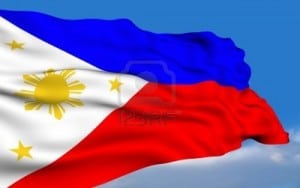 The Department of Trade and Industry-Export Marketing Bureau (DTI-EMB) has identified at least three product categories that are now “trending” among global consumers, providing new avenues for growth and expansion for Filipino exporters.
The Department of Trade and Industry-Export Marketing Bureau (DTI-EMB) has identified at least three product categories that are now “trending” among global consumers, providing new avenues for growth and expansion for Filipino exporters.
Agnes R. Legaspi, EMB assistant director, said organic, halal and kosher products are the trio of consumer goods opening up new opportunities for exporters whose goods have been certified by recognized certifying bodies.
Speaking at the recent 2018 BSP Exporters’ Forum, Legaspi said the world consumer market for organic products reached $565 billion in 2013 and continues to grow rapidly.
High-income markets like Europe and North America, particularly the United Kingom and United States, represent more than 90 percent of global consumption of organic products.
Legaspi said exporters that can label their products as organic can sell them at premium prices.
“But you have to make sure your certification is accepted by the market that you want to export to,” she added.
Best-selling organic products around the world are dairy products and eggs.
The halal market is another potentially huge market for Filipino producers that make an effort to become halal certified, Legaspi said.
The market for halal products and services is one of the fastest-growing consumer segments in the world, a $2.6-trillion industry that is expected to grow to $10 trillion by 2030.
Total trade in halal food alone, representing 62 percent of the global halal market, is estimated at $632 billion. Other important halal products include cosmetics and personal-care products, pharmaceuticals and nutraceuticals.
Legaspi pointed out that halal consumers are not just those from the Muslim community, but also count non-Muslims who are on the lookout for healthy food that underwent food preparations prescribed under strict Islamic dietary laws.
Filipino exporters looking to enter this market “should make sure you have the certification to call your products and services halal-certified,” she advised.
Meanwhile, the biggest market for kosher products is still the US with its sizable Jewish population, but there is also strong demand in the European Union and Israel, Legaspi said.
The United States kosher market alone has more than 12 million consumers and has seen double-digit growth of 10 percent to 15 percent annually since 2004, according to the DTI.
Legaspi again underlined the importance of making sure products exported as kosher are duly certified.
“Kosher certification is a guarantee that the raw materials, processing and traceability have been controlled according to the Jewish ritual laws,” she explained.



